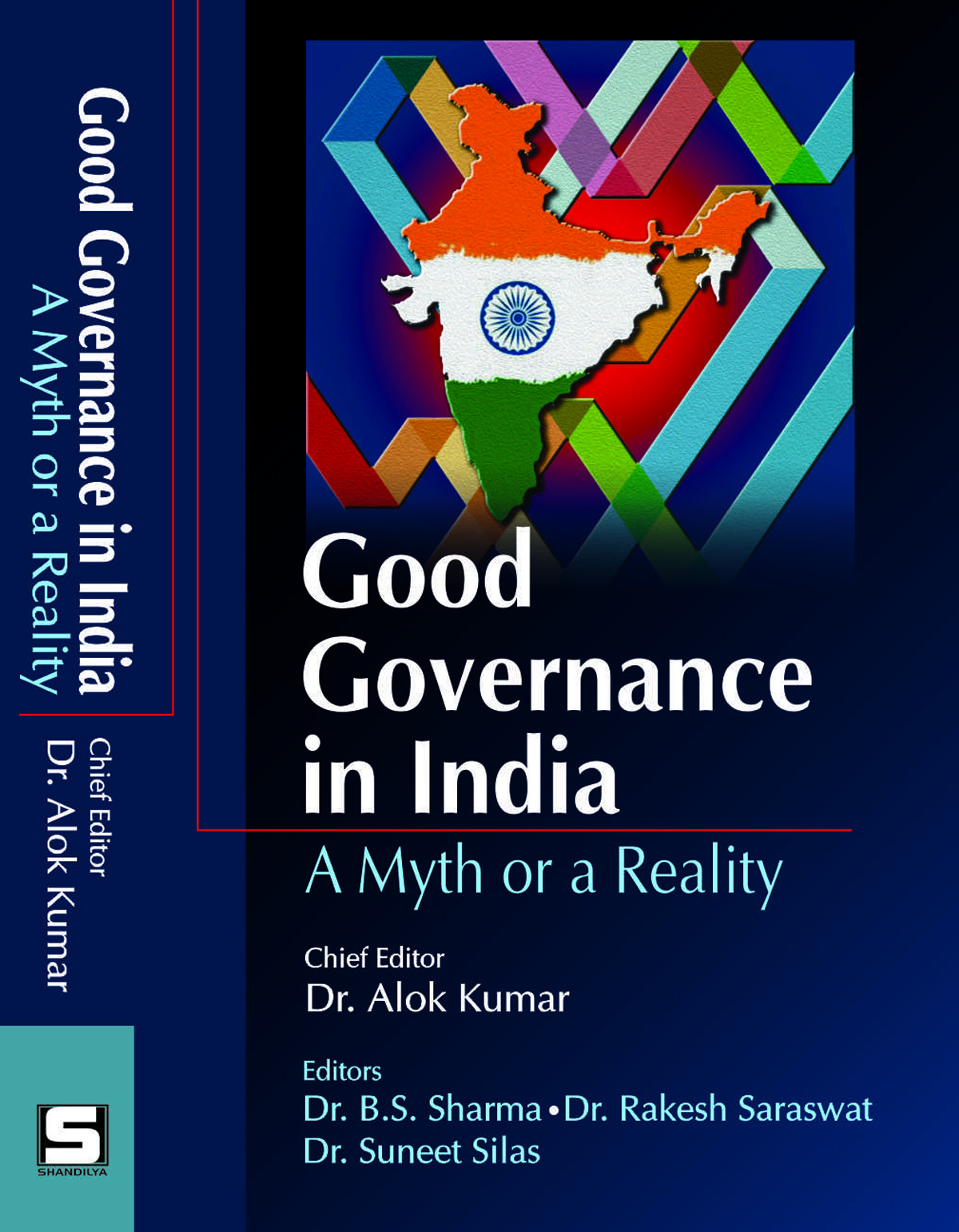Categories of the Books
- 2025
- Biography
- Science
- Sociology
- 2024
- Women Studies
- 2023
- 2022
- 2021
- 2020
- 2019
- 2018
- 2017
- Dr. Debesh Bhowmik
- Agriculture
- Banking
- Covid-19
- Dalits
- Economics
- Education
- Education & Gender
- Environment
- Finance
- Hindi
- History
- Human Rights
- Gandhian Studies
- GST
- Geography
- Insurance
- Law
- Literature
- Migration
- Military Studies
- Military Law
- Mass Media
- Commerce
- Management
- New Books
- NREGA
- Public Administration
- Politics
- Share Market
- Social Work
- Tourism
- Tribes
- Women & Children Studies
- Forthcoming
- Uncategorized
Book & Detail
Good Governance in India : A Myth or a Reality
-

Author : Ed.: Alok Kumar, et al. Year of Publication : 2019 ISBN : 9789388147187 Language : English Binding : Hard Bound Pages : 432 Size : 23 cms Categories : 2019, Economics, Public Administration Price : 1900
FREE HOME DELIVERY
About the Book :
The countries aspiring for growth and development are aiming at the efficient utilization of available resources. This they can only achieve by having a good governance system at all levels. Good governance means happiness and welfare of all, through limited government, rule of law, properly guided bureaucracy, disciplined rulers, fixed salaries, maintenance of law and order, curbing corruption and uniformity in administration.The main constituents of the good governance are rule of law; honesty, or probity in public affairs; independence of judiciary and human rights; people’s participation; equality of treatment; absence of discrimination on the basis of colour, creed, caste, race, language, sex, region, ability; administrative responsiveness; social sensitivity; ethical approach or conduct; willingness to learn, and an urge to improve, as well as to evolve the capability to anticipate the nature and direction of change; to cope with challenges as they arise, from time to time.
Good governance is faced with challenges like corruption at various levels, centralization of power and authority, criminalization of politics, weak legislators with criminal records, poor knowledge about development issues and low level of education, poor people’s participation, less active civil society, poorly empowered grassroots democratic institutions, poor coordination among the political, administrative and community level organizations and institutions, delay in delivery of judicial decisions, etc.
India has done a lot in the direction of good governance by going in for financial inclusion, digital transfer, financial accountability, accountability of politicians and bureaucrats, transparency in delivery systems, freedom from distortionary incentives– through corruption, nepotism, patronage or capture by narrow private interest groups, etc. This has led to the establishment of trust in the government machinery. India is achieving in areas of education, women empowerment, social security and public utility services through good governance.
Contents Include : Governance in Education System in India; Governance in Higher Education System in India; Good Governance for Women Empowerment through Political Participation; Governance and Economic Welfare; Development of Higher Education System in India through better Governance; Good Governance in Ancient India; Good Governance in Medieval India; Good Governance in India; Good Governance and Development Administration; Corporate Social Responsibility in Society; Panchayati Raj Women Members and their Empowerment; Women Empowerment and Good Governance; Sustainable Development and Good Governance; Political Empowerment of Women in India; Corporate Governance; Media in Good Governance; E-Governance and Women Empowerment; E-Governance in India; Judiciary and Good Governance; Indian Judiciary and Good Governance: Financial Governance; Digitalization and Governance; etc.
About the Editor :
Dr. Alok Kumar, Associate Professor, Department of Economics, St. John’s College, Agra is the Secretary of Global Economist Forum (India Chapter), Secretary, Indian Economics and Applied Sciences Association. He has been associate editor of Indian Economic Journal (special issue) and member of the Advisory Committee of number of Research Journals.Dr. Alok Kumar has excelled himself in several areas of Economic Policy, Governance, Rural Development and Panchayati Raj. He has numerous research papers to his credit in national and international seminars and supervise several research scholars for the Ph.D. degree.
Dr. Alok Kumar has rendered his expertise in Rural Development and Panchayati Raj to National Institute of Administrative Research, Lal Bahadur Shastri National Administrative Academy, Mussoorie and Rajiv Gandhi National Institute of Youth Development, Sriperumbedur. He has been on the consultative panel for Youth Policy. He has been involved in Research study Project of Ministry of Rural Development in different states on Central Schemes like FFWP, IAY and MGNREGA. He is also involved in Action Research and Research Study Scheme of Ministry of Panchayati Raj.
Dr. B.S. Sharma, Head of Department of Economics, K.R. College Mathura has supervised a dozen of research scholars for the Doctoral degree. He is President of DBRAUEWA and life member of Indian Economic and Allied Sciences as well as the Indian Economic Association. Dr. B.S. Sharma has excelled himself in several areas of Rural Transformation, Economic Theory, and Governance. He has organized and paneled numerous National and International conferences. He has a number of research papers in national as well as international research journals to his credit.
Dr. Rakesh Saraswat, Associate Professor, Department of English, K.R. College, Mathura, has published a number of books and research articles. He has been an advisor on Disaporic studies in Gujarat University, Ahmedabad (Gujarat).
He is a life member of Forum of Contemporary Theory, Baroda and Indian Economics and Applied Sciences Association and Organizing Secretary of the 6th National Conference of DBRAUEWA.
Dr. Suneet Silas, Associate Professor, Department of History, St. John’s College, Agra and has put in over 27 years of service. He specializes in the area of Medieval Indian History and did his Ph.D. on Alexander Cunningham—Father of Indian Archaeology. He is an editor for the ‘Bede Athenaeum’, the Journal of St. Bede’s College, Shimla (H.P.). He has supervised five Ph.D’s. He has published several research papers in reputed journals and presented papers in national and international level seminars and conferences.

